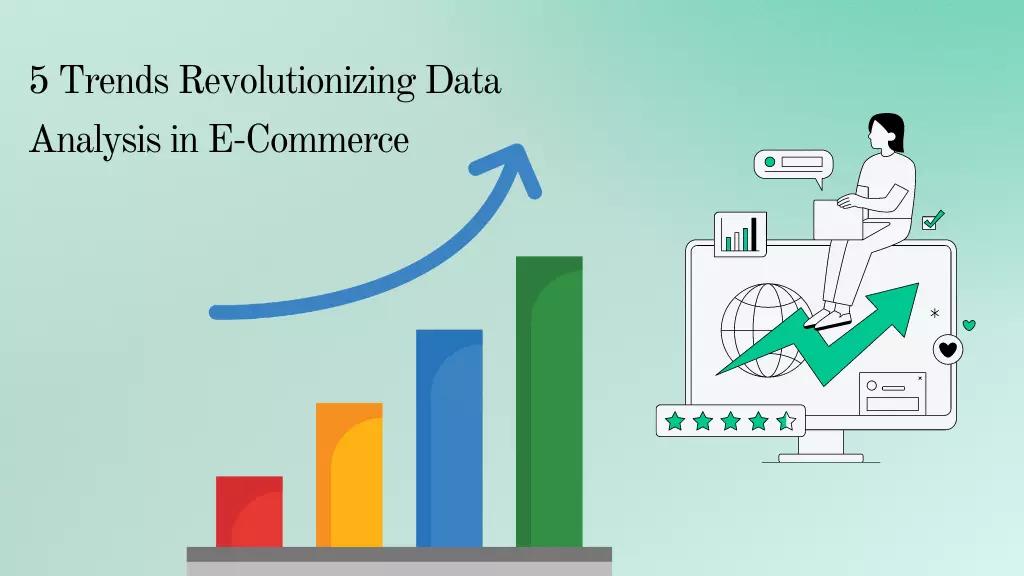Picture the modern e-commerce landscape as a high-speed train, fueled by vast expanses of data. This train is charging forward, with each piece of data akin to a bolt tightening its engine. To not just ride but drive this locomotive requires mastery in data analysis - a skill set that's fast becoming the lingua franca for industry professionals.
Now consider real-time analytics, predictive modeling of customer behavior, and hyper-personalization; these are pivotal trends revolutionizing e-commerce strategy.
And they share a common thread: The need for analytical prowess, often powered by Python and similar tools. As we navigate an ever-competitive digital marketplace, learning to leverage these skills is not a luxury - it's essential to staying ahead.
1. Educational Evolution: Upskilling as the Forefront of E-commerce Innovation
In an industry where data is equivalent to currency, e-commerce professionals are rapidly recognizing a critical pivot: upskilling is no longer optional. It's here that educational advancements take center stage, heralding a new age of e-commerce defined by expertise in data analysis. And within this realm, Python programming emerges as the heavyweight for powerful data manipulation.
Why Python, you might ask? The answer lies in its simplicity and potency - a rare blend that demystifies data analytics for newcomers while offering exhaustive libraries and frameworks for seasoned analysts. Platforms dedicated to sharpening skills in Python are not just churning out capable programmers; they're sculpting the architects of tomorrow's e-commerce strategies.
Therefore, engaging with these evolving educational resources is akin to planting one's flag early in uncharted territory. Those who adapt will find themselves not just surviving but thriving as this trend reshapes the landscape from the ground up.
2. The Rise of Real-Time Analytics: Unearthing Instant Insights
Stride into any leading e-commerce hub and you'll find the pulse of real-time analytics beating at its core. It's a game-changer, providing a stream of immediate data that informs decisions with the urgency of now. Picture the agility to respond to consumer behavior as it unfolds, tailoring experiences in a blink.
This isn't prediction - it's precision. Real-time analytics allow businesses to monitor website traffic, conversion rates, and shopping cart abandonment as they happen. And with Python programming woven into this fabric, the manipulation of vast datasets in real-time becomes not just plausible but almost expected.
Incorporating such instantaneous insights is shifting the e-commerce playing field. Stalwarts armed with real-time data are not just reacting; they are pre-empting, transforming their digital storefronts into dynamic entities that evolve by the minute.
3. Predictive Power: Anticipating Customer Moves with Data
The chasm between success and obscurity in e-commerce often boils down to anticipation - knowing what the customer desires before they click away. Enter machine learning, a cornerstone of modern predictive analytics where data isn't just reviewed but harnessed to forecast future buying patterns.
Machine learning algorithms digest historical data to predict customer behavior with an accuracy that borders on prescient. They identify trends and preferences, enabling businesses to offer not just what customers have liked, but what they're likely to desire next. This is the crystal ball of e-commerce, polished with the cloth of technology.
It's in this predictive capacity that companies can sculpt bespoke marketing campaigns, manage inventory proactively, and ultimately craft an experience so intuitive it feels like second nature. The strategic employment of machine learning not only anticipates a customer's next move but positions brands as trusted custodians of their shopping journey.
4. Tailored Touches: How Personalization is Redefining Shopping
The notion of personalization in e-commerce has evolved from a novel perk to an outright expectation. Shoppers no longer meander through one-size-fits-all stores; they expect curated corridors, and items handpicked with their tastes in mind. This shift towards personalization is not just revolutionizing shopping - it’s reconstructing it from the ground up.
At the forefront are data wizards adept at distilling patterns and preferences into algorithms that deliver personalized content, recommendations, and deals. It’s a subtle dance between retailer and consumer, each step informed by data points meticulously gathered and analyzed.
And what imparts this level of sophistication? The confluence of big data analytics with machine learning. These technologies empower retailers to create individualized experiences that resonate on a personal level, cementing loyalty and nudging conversion rates upward with every interaction. It’s clear that in the landscape of e-commerce, personal touches don’t just matter - they define success.
5. Learning to Speak Data: The Growing Importance of Analytical Skills
E-commerce has its own dialect of success, and it's spelled D-A-T-A. Mastery of this vocabulary is essential; gone are the days when data analysis was a specialty - now it's the cornerstone. Grasping customer preferences, staying ahead of market dynamics, and fine-tuning business processes are all contingent on one's prowess in dissecting and leveraging data insights.
Professionals versed in this language hold the key to deciphering complex consumer narratives and marketplace shifts. They transform what seems like abstract numbers into concrete strategies that drive growth and innovation. With every byte of information presenting an opportunity, analytical fluency is not just advantageous - it’s imperative for those aiming to lead in the digital bazaar.
The ascendancy of Python programming in this domain cannot be overstated. Its versatility for powerful data manipulation puts it at the epicenter of analytical training programs. These platforms do not merely teach code; they instill a mindset attuned to the nuances of data.
Mastering these skills positions individuals as indispensable assets within their organizations, capable of translating raw data into strategic insights. In an arena where every competitive edge counts, proficiency in analytics is the slingshot allowing David to meet Goliath on equal footing.
Data Mastery: The E-Commerce Frontier
In the realm of e-commerce, data reigns supreme. Embracing trends like real-time analytics and personalized marketing - powered by Python programming and machine learning - is crucial. As education paves the way, those who skillfully navigate this data-driven landscape are set to chart the course for tomorrow's retail giants.

